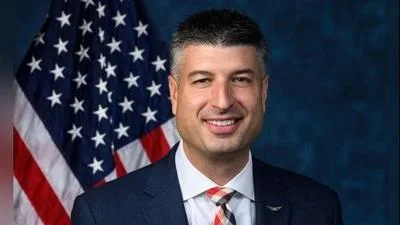Kevin M. Guskiewicz President at Michigan State University | Official website
Kevin M. Guskiewicz President at Michigan State University | Official website
A U.S. Supreme Court case brought by a group of commercial fishermen could exacerbate government power struggles. For decades, the legal test known as “Chevron deference” has been used to evaluate executive government agencies’ authority, often allowing government bureaucrats to carry out many forms of regulation.
Now, this legal doctrine is being challenged in the case of Loper Bright Enterprises v. Raimondo, which could place administrative agencies under much more judicial scrutiny and shift regulatory authority back to Congress amid a time of heightened polarization. Jordan Cash, an assistant professor of political theory and constitutional democracy in Michigan State University’s James Madison College, provides an overview of this case and what an overturning could mean.
"What are the facts of this case?" Cash explains that the case stems from the Magnuson-Stevens Fishery Conservation and Management Act of 1976, which governs the regulation of commercial fishing. "Under that law, commercial fishing companies must allow federal agents — often called monitors or observers — to join them on their fishing boats to enforce certain regulations and prevent overfishing." In 2020, however, the National Marine Fisheries Service (NMFS) implemented a new interpretation requiring companies not only to allow these monitors onboard but also to partially subsidize their salaries at an estimated cost of roughly $700 a day. In response, Loper Bright Enterprises—a group of commercial fishing companies from New England—challenged the rule.
"What is 'Chevron deference'?" Chevron deference was defined in the 1984 case Chevron U.S.A., Inc. v. Natural Resources Defense Council, Inc., and states that in cases involving a government agency’s interpretation of a congressional statute, courts should employ a two-prong test: first determining if Congress has directly addressed the precise question at issue; if not, then considering whether the agency’s answer is based on a permissible construction of the statute. This doctrine has led courts to give administrative agencies considerable leeway in writing and applying regulations.
"How has court sentiment shifted on administrative authority?" In recent years, Cash notes that "the U.S. Supreme Court has shown a willingness to push back on administrative actions." He cites the 2022 case West Virginia v. Environmental Protection Agency as an example where "the court held that the EPA went beyond its statutory authority granted in the Clean Air Act." If these trends continue with Loper Bright Enterprises v. Raimondo, there is a high likelihood that Chevron deference will be overturned.
"What could a ruling in favor of Loper Bright mean for the future?" According to Cash: "At its most fundamental level," ending Chevron deference would significantly change administrative law by restricting agencies more closely to explicit congressional legislation texts when creating regulations. Broadly speaking: "It could serve as a constitutional wakeup call" forcing Congress members "to be much more detailed" in legislative writing.
While some discretion will always exist for how administrative agencies interpret legislation for resulting regulations: "That discretion will be more limited if Chevron deference is overturned," says Cash—adding that it highlights basic tensions within modern democratic self-government regarding balancing elected representatives' political responsibilities versus unelected expert bureaucrats' roles ensuring effective governance depending upon this ruling's outcome.





 Alerts Sign-up
Alerts Sign-up